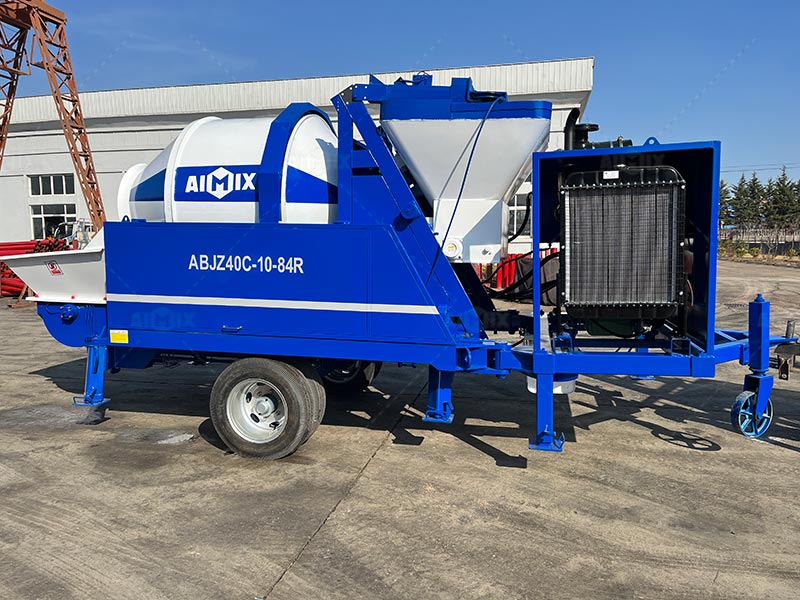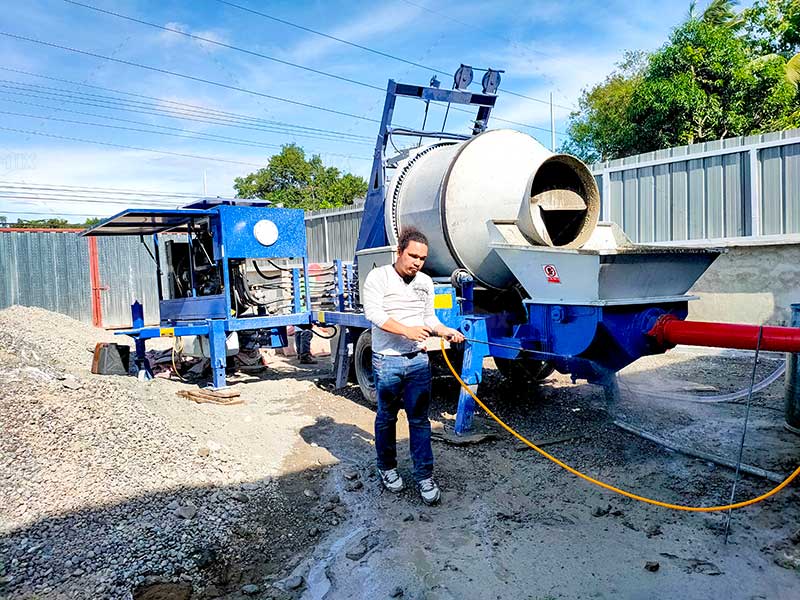Diesel or Electric Concrete Pump Mixer: Which is More Cost-Effective?
When it comes to choosing the right concrete pump mixer for your construction project, one of the most pressing decisions involves whether to opt for a diesel-powered or electric-powered unit. Both options have distinct advantages and drawbacks, and the choice can have a significant impact on the overall costs of running a construction site. Understanding the financial implications of each can help determine which is more cost-effective for specific operational needs. This article delves into the key factors of diesel vs. electric concrete pump mixer, exploring their operational costs, fuel efficiency, and long-term economic benefits.
Fuel Costs: A Major Factor in the Decision
The primary difference between diesel and electric concrete pump mixers lies in their fuel source. Diesel-powered mixers rely on fuel, which can be volatile in terms of pricing. Diesel fuel is often subject to market fluctuations, and its costs can significantly impact the long-term expenses of operating the equipment. On the other hand, electric mixers rely on electricity, which is generally more stable in price and, in many regions, more affordable than diesel fuel.
However, while electric mixers may seem to have an edge in terms of fuel efficiency, it's important to consider the geographical context. In areas where electricity is costly or unreliable, the benefits of an electric mixer could be negated by the need for backup generators or higher local energy prices. Conversely, diesel mixers are often more effective in regions where electricity infrastructure is lacking or inconsistent.

Maintenance and Durability: Long-Term Savings
Maintenance is another critical aspect that influences the overall cost-effectiveness of concrete pump mixers. Diesel-powered mixers, due to their complex engines, require regular maintenance to ensure smooth operation. This includes oil changes, air filter replacements, and frequent checks on the fuel system. The cost of servicing a diesel engine can accumulate over time, especially when dealing with high-intensity usage. Additionally, diesel engines tend to wear out faster, leading to higher repair and replacement costs.
Electric mixers, by comparison, have fewer moving parts, which translates to lower maintenance requirements. Electric motors are known for their longevity, and without the need for frequent fuel system maintenance, the overall cost of upkeep is typically lower. This translates into less downtime and fewer service calls, making electric mixers a potentially more cost-effective option in terms of long-term maintenance. However, electric models still require maintenance of their electrical systems and batteries, which can add additional costs, though these tend to be less frequent than those of diesel-powered units.
Operational Efficiency and Environmental Considerations
Operational efficiency is perhaps the most significant differentiator when it comes to determining the cost-effectiveness of concrete pump mixers. Diesel-powered mixers generally have more power, making them ideal for large-scale operations or construction sites with significant material requirements. These mixers can work continuously without the need to stop for recharging, which can be a major advantage in high-demand environments.
Electric mixers, while often more energy-efficient, may require more downtime due to charging needs, depending on the model. For smaller jobs or short durations, however, electric mixers can perform just as efficiently as diesel-powered ones. Moreover, the environmental impact of electric mixers cannot be overlooked. Electric models are generally cleaner and more eco-friendly than their diesel counterparts, producing fewer emissions and reducing the overall carbon footprint of the construction site.
The cost of electricity required to power an electric mixer is another consideration. While it may be more stable than diesel prices, energy costs can vary depending on location. Additionally, the environmental costs of electricity generation—especially if sourced from non-renewable sources—can impact the overall environmental benefits of using an electric model.

Conclusion: Which is More Cost-Effective?
In conclusion, the decision between a diesel and electric concrete pump with mixer for sale depends on a variety of factors, including the size and scope of the project, fuel and energy costs in the region, and the long-term maintenance needs. Diesel mixers, with their higher initial fuel costs and increased maintenance needs, may be better suited for large-scale operations with constant use. However, for smaller projects or regions with affordable and reliable electricity, electric mixers offer significant cost savings in terms of fuel efficiency and reduced maintenance.
Ultimately, the most cost-effective choice hinges on understanding your operational requirements, environmental considerations, and the cost dynamics specific to your location. Whether opting for a diesel or electric mixer, making an informed decision will ensure that your concrete pumping operations run efficiently and economically.
